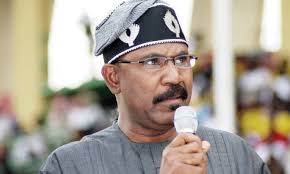The removal of Mudashiru Obasa, the immediate past Speaker of the Lagos State House of Assembly, has sparked widespread discussions, with Obasa himself challenging its legality. The former Speaker has claimed that his removal was unconstitutional, arguing that due process was not followed in the proceedings. However, former Speaker of the Lagos Assembly and ex-minister, Olorunnibe Mamora, has come forward to confirm that the removal was indeed constitutional.
Mamora, who served as Speaker of the Lagos State House of Assembly from 1999 to 2003, representing Lagos East Senatorial District from 2003 to 2011, and also held ministerial positions under President Muhammadu Buhari, addressed the matter during an exclusive interview. Mamora, who is no stranger to the workings of the legislative body, has sought to clarify the difference between impeachment and removal, particularly in the context of Obasa’s situation.
Obasa, a long-serving member of the Lagos Assembly, was removed on January 13, 2025, by 35 out of the 40 members of the Assembly. His removal followed allegations of misconduct and mismanagement of funds. His former Deputy, Mojisola Lasbat-Meranda, was subsequently appointed as the new Speaker. The move was made despite Obasa’s protests and the support of his political group, the Mandate Movement, which rallied behind him in a bid to challenge his ousting.
In defense of the Assembly’s decision, Mamora explained that while the term “impeachment” is often used, it is technically not part of the Nigerian constitution when it comes to the removal of the Speaker. Mamora emphasized that the constitution speaks specifically to the “removal” of the Speaker, and not impeachment, which involves a more formal process of presenting allegations.
“Let me correct the impression,” Mamora said. “If you look at the constitution, you would not find impeachment. What you find is removal. There is a difference between removal and impeachment.”
Mamora clarified that impeachment, in other contexts, refers to the formal presentation of allegations of wrongdoing against a public officer. This may not necessarily result in their removal unless the allegations are proven and lead to a conviction. He cited the example of former U.S. President Bill Clinton, who was impeached but not removed from office. According to Mamora, the Nigerian constitution does not specifically outline impeachment but rather provides a procedure for the removal of public officials like the President, governor, or Speaker.
“The removal of a Speaker in the House of Assembly is simple,” Mamora continued. “Once members bring a motion that is supported by two-thirds of the members, then the Speaker vacates the seat. That’s all. It does not even say you should explain. It is just a simple process.”
The procedure, Mamora explained, is less complex than the process for removing a governor or president, which requires broader procedures and the support of a more significant portion of the electorate. The constitution merely requires that a motion for the Speaker’s removal be supported by a two-thirds majority in the House of Assembly. The motion, Mamora pointed out, does not even require the presentation of specific allegations.
Mamora’s statements shed light on the legal framework guiding the removal of officials like the Speaker of the House. According to Section 92, Subsection 2 of the Nigerian constitution, a Speaker can be removed if a motion is presented and supported by two-thirds of the members of the Assembly. No formal impeachment procedure is required for this process, making Obasa’s removal consistent with the constitution.
Mamora did not pass judgment on whether the allegations against Obasa were true, as he is not a member of the Lagos State Assembly. However, he acknowledged the allegations of misconduct and mismanagement that led to Obasa’s removal. He suggested that if the allegations were valid, then the decision to remove him would be justified.
In response to some of the claims made against Obasa, Mamora also addressed the allegation that Obasa had shown disrespect to the office of the Lagos State Governor, Babajide Sanwo-Olu. Mamora stressed that, regardless of any personal disagreements, it would be wrong for any Speaker to disrespect the Governor, who remains the top executive officer of the state.
“The Governor remains the number one person of the state as the chief executive,” Mamora said. “I would not expect the Speaker to be rude or show disrespect to the Governor of the state no matter what.”
Although Mamora admitted that he was not privy to any direct meetings or interactions between Obasa and the Governor’s Advisory Council (GAC), he stated that it would not be appropriate for the Speaker to disrespect the Governor under any circumstances.
The situation surrounding Obasa’s removal has highlighted the intricate dynamics within the Lagos State House of Assembly and the broader political landscape. Obasa, who had served as Speaker since 2015, was a powerful figure in the state’s politics, but his ousting has sparked both support and opposition from various quarters. His supporters, particularly from the Mandate Movement, have accused other Assembly members of political betrayal, while others, including Mamora, have insisted that the removal followed due process and was legally sound.

